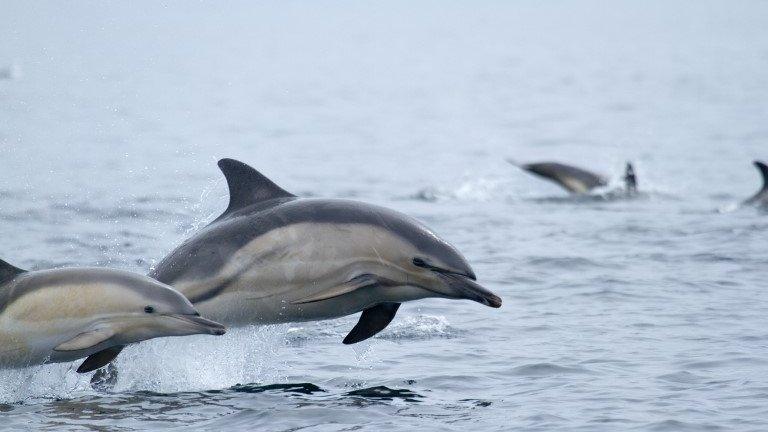Passionate debate on Marine Protected Areas, says Lochhead
- Published

A smoke canister was released as fishermen held their protest at the Scottish Parliament
The planned introduction of 30 Marine Protected Areas (MPAs) off Scotland has sparked a "passionate debate", the environment secretary has said.
Richard Lochhead's comment followed the rural affairs committee's rejection of a motion to have restrictions on fishing in 14 MPAs removed.
Ahead of the committee meeting, rival demonstrations were held supporting and opposing the imposition of the areas.
Mr Lochhead said it was important all views on MPAs were heard.
Proposals for the Firth of Clyde to the south of the Isle of Arran have proved particularly controversial.
Different sectors of Scotland's fishing industry oppose or support the Scottish government's implementation of those MPAs and the others.
Some in the industry say the restrictions will harm the livelihoods of fishermen and their communities, while others believe protected areas would boost the species they catch.
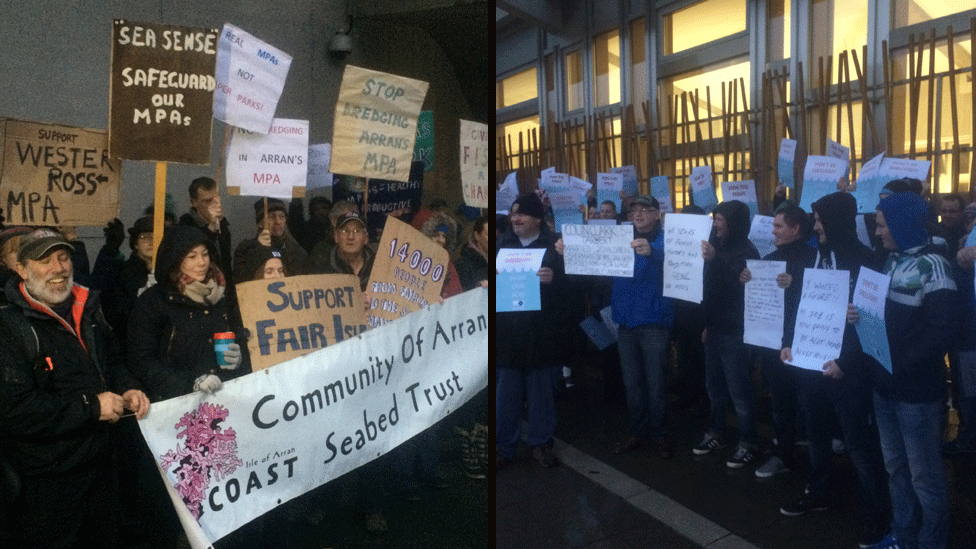
Demonstrations were held outside Holyrood ahead of a debate on MPAs
Mr Lochhead told BBC Scotland: "The Clyde Fishermen's Association and mobile sector are among many voices in the debate.
"I also have to listen to the voices of the creelers and hand divers, as well as many other sectors who have an interest in this debate and to the people living in the communities of the west of Scotland."
Mr Lochhead said many views had already been expressed, but some people have not made theirs' known.
He said: "It is a very passionate debate and many people who have spoken to me have said they are too scared to speak out publicly and make their views known, and I have urged them to do so."

Analysis by David Miller, BBC Scotland environment correspondent
The debate over the management of Scotland's Marine Protected Areas is highly complex and highly charged.
Creel fishermen in support of the Scottish government's plans have told me they have been threatened and had their gear sabotaged.
Meanwhile, the Clyde Fishermen's Association and the Scottish Fishermen's Federation, who are firmly opposed, argue the plans put the very survival of west coast fishing communities at risk.
The situation is proving deeply divisive.
Ministers have been stung by the ferocity of the criticism they're facing.
But they are convinced the science is on their side and they must take decisive action.
This has been far from plain sailing for Richard Lochhead and his advisors.
And given the strength of feeling, the forecast for Scotland's inshore waters is unlikely to improve anytime soon.

Earlier on Wednesday, an attempt to scrap restrictions on fishing in 14 MPAs, including Loch Sween, South Arran, Upper Loch Fyne and St Kilda, failed.
Conservative MSP Jamie McGrigor had called for planned restrictions on bottom-towed fishing to be annulled.
But members of Holyrood's rural affairs committee voted against the move.
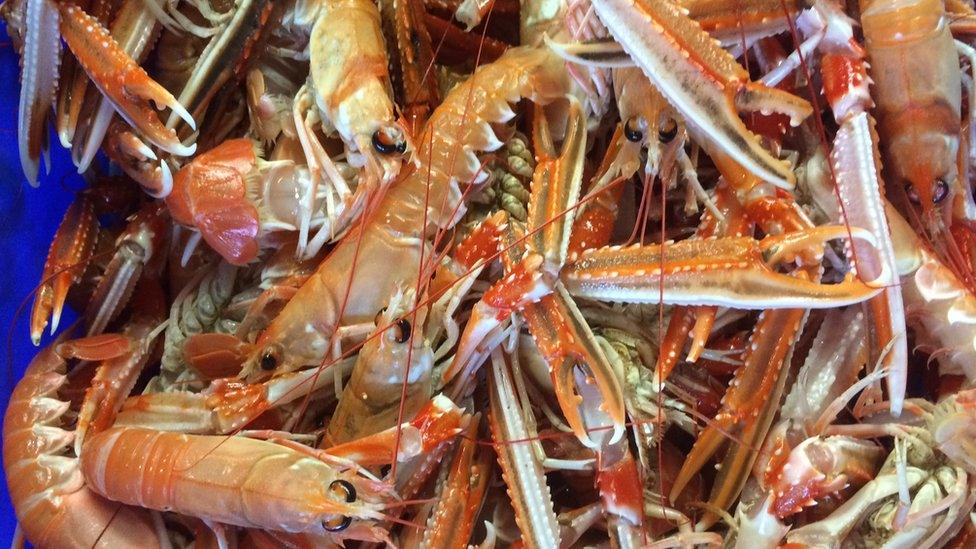
Demonstrations by groups of people both for and against MPAs were held outside the Scottish Parliament ahead of the debate.
The protests and debate marked a new row over Scotland's network of protected areas where fishing would be limited to protect habitats.
The legislation enforcing the rules of the MPAs has still to be passed.
Conservation group Scottish Environment Link had urged the committee not to support Mr McGrigor's motion.
The group's Calum Duncan said well-managed MPAs were "essential" to boosting and protecting marine habitats.
'Blanket ban'
But the Scottish Fishermen's Federation (SFF) said the restrictions proposed for the South Arran MPA went "far beyond" what was agreed during the initial consultation.
It has urged MSPs to support local communities on the west coast by rejecting the government's proposals.
SFF chief executive Bertie Armstrong said: "It is entirely possible to allow limited and carefully controlled fishing within parts of MPAs where there are no features of conservation importance, and to impose a blanket ban over a whole area is totally irrational and unnecessary.
"One of the founding objectives of the Common Fisheries Policy is to enable the continuation of fishing whilst ensuring environmental sustainability - a principle the Scottish government is completely ignoring.
"It is also ignoring the widespread local community opposition to these proposals."
- Published18 December 2015
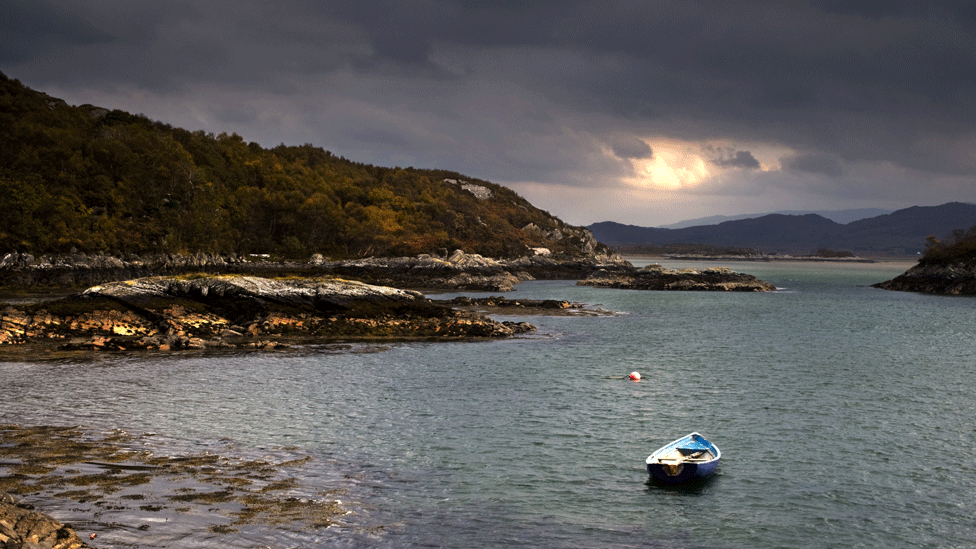
- Published23 October 2015
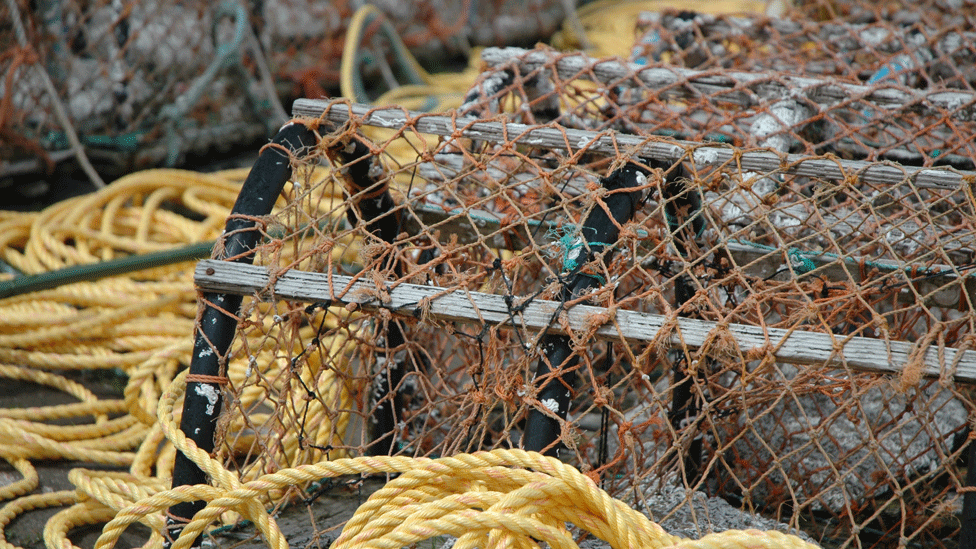
- Published21 October 2015

- Published23 September 2015
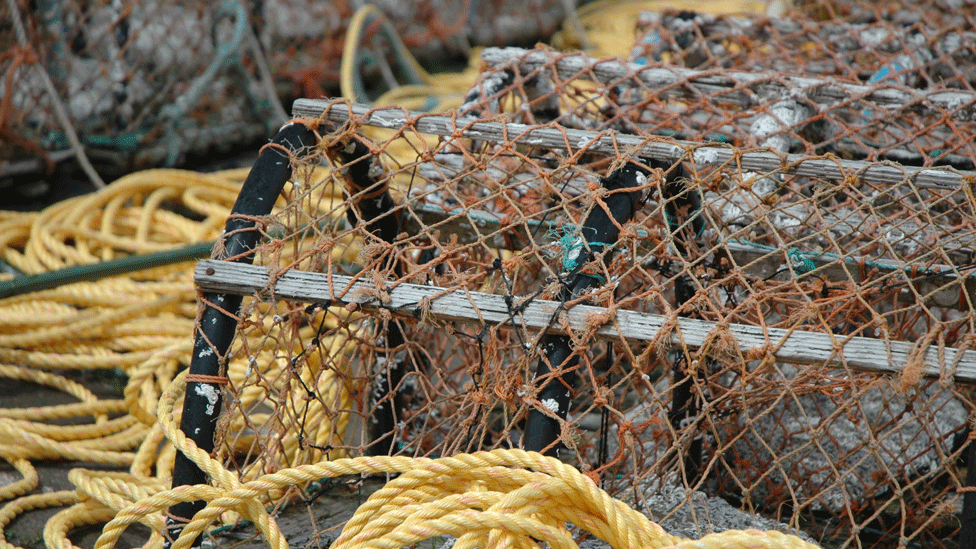
- Published18 August 2015
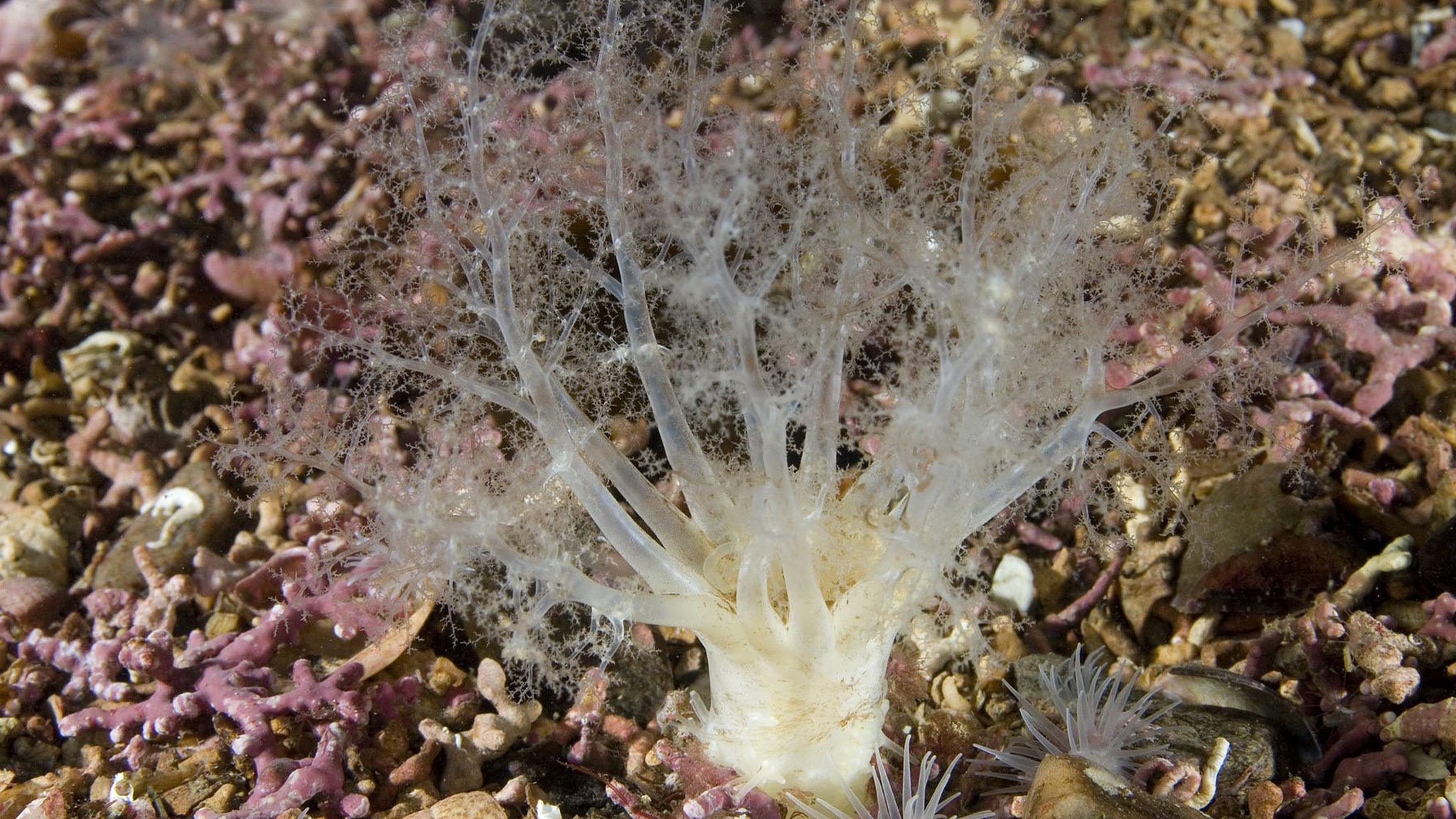
- Published6 August 2015
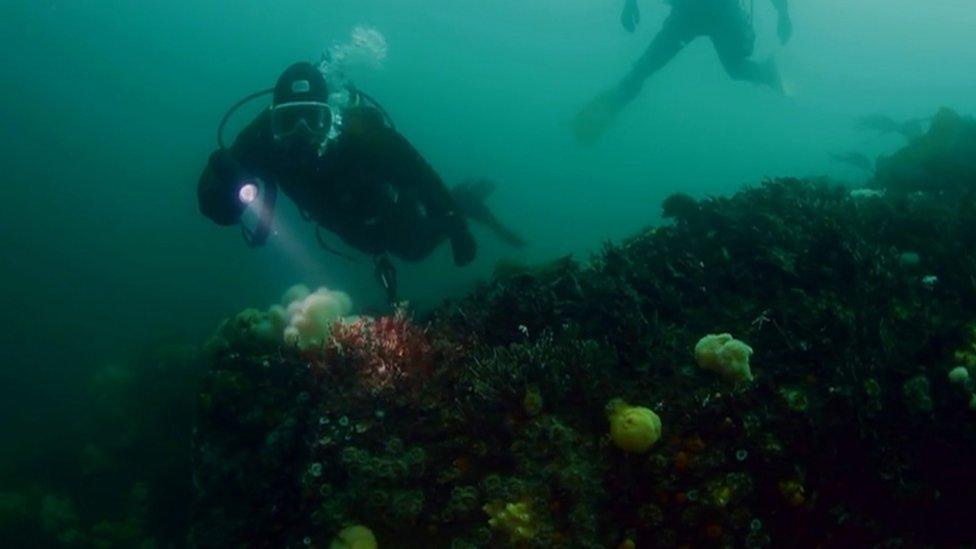
- Published31 January 2015
